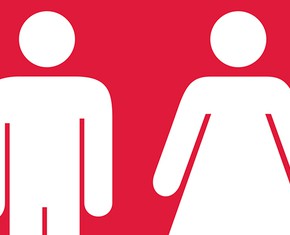The views expressed in our content reflect individual perspectives and do not represent the authoritative views of the Baha'i Faith.
The coronavirus pandemic brought illness, loss of loved ones, and economic hardship to many people worldwide — exacerbating existing social problems such as poverty, joblessness, and inequality. Simultaneously, the horrible long-standing disease of racism has finally come to the general public’s attention.
How is it possible to think about the existential threats to humanity — climate change, the loss of biodiversity, and the looming food crisis — at a time when dealing with racial injustice and the pandemic can often feel so overwhelming?
Overcoming these problems is possible when we recognize their common root and by elevating our consciousness to a world-embracing vision. Baha’u’llah, the founder and prophet of the Baha’i Faith, wrote: “Let your vision be world-embracing rather than confined to your own self.”
The light of a world-embracing vision will help us find holistic approaches when tackling difficult issues because no problem can be solved in isolation.
Understanding the root of humanity’s problems
All of our social and environmental problems are interconnected and originate from egotism, which has manifested itself in the exploitation of people and nature. People of color and indigenous people have suffered the most from colonialism and slavery. Our current global economic system is perpetuating this injustice and is widening the gap of wealth and poverty. It also demands continuing economic growth which is destroying nature, the foundation for human life:
• The oceans, for example, used to provide seemingly limitless protein for people, but this food supply is now seriously threatened by overfishing, warming waters, acidification, and many kinds of pollution.
• The loss of biodiversity should also be a cause for greatest concern. We depend on the vast diversity of plants and animals for our food supply, medicines, the pollination of crops, and above all, the ecological services of healthy ecosystems. Today, we’re seeing how degraded ecosystems allow some pathogens to multiply, affecting human health when zoonotic diseases such as COVID-19 jump from animals to humans.
• Climate change already causes much human suffering, death, and substantial economic losses across the world. Just think about the destruction of storms that are becoming increasingly stronger in a warming world, the catastrophic impacts of heat and droughts on agriculture, or the devastation of floods and wildfires.
Climate change, increasing food prices, and the pandemic disproportionately affect people of color and indigenous people first and the most. In the future, the very survival of all of humankind is at stake – if we don’t change.
How can a world-embracing vision help humanity solve its problems?
A world-embracing vision means changing our focus from the “I” to the “we” — from narrowly seeking our personal interest and profit to serving the common good. It also means to prioritize the well-being of all of humankind over the advantages of our own country. The Baha’i teachings clearly explain that such a world-embracing vision means that we regard humanity as one family.
When this spiritual light is shining, we will no longer tolerate injustice, discrimination, and violence committed toward our family members of color. We will know how to approach the issues of refugees and migration, and we will find the ways to reduce and ultimately eliminate guns on our city streets and weapons of war. We will gather our collective will to quickly transition away from fossil fuels by developing more renewable energy, and people will embrace a much simpler lifestyle. This light will guide us to make these transitions just and will illuminate the path to protect the most vulnerable people from the impacts of climate change and other disasters.
Let us think about agriculture as one example. How could the spiritual insight that all human beings are one family guide the agricultural system’s transformation?
An Example: Reforming Agriculture
Understanding the oneness of humanity will undoubtedly catalyze new priorities for agriculture. No one would want to apply toxic pesticides and herbicides to fruits and vegetables — or feed growth hormones and antibiotics to livestock — that they’re going to feed their family. Instead, we’d aim for the food produced to be healthy and chemical-free. Environmentally responsible agriculture — such as organic farming — will also help prevent soil erosion and keep the soil fertile for future generations who will also need to grow food.
Currently, agriculture significantly contributes to greenhouse gas emissions, mainly methane from livestock and nitrous oxide from fertilizers. Organic farming can sequester carbon in the soil, which is essential to cooling the planet. It relies on various crops, not on monocultures that are more susceptible to diseases and pests. It also requires less irrigation, which is vital in the many areas suffering from water scarcity.
Agriculture is currently responsible for much of the decline of plants and animals, especially insects — including butterflies, bees, and other pollinators — and birds. Organic farming will help preserve biodiversity and the diversity of seeds for crops for future generations. The diversity of food grown in smaller and medium-size farms everywhere will improve food security.
Organic farming does require a bit more human labor, but in doing so, it provides jobs. The farmer — or agricultural company — may not maximize profits to the extent they do today, but they would receive additional support through a more mutually beneficial social arrangement. Farmworkers would receive fair working conditions, a living wage, and health insurance. Society would also want to make sure that farmers will make some profit and will receive financial assistance during difficult years, which may increasingly be necessary in a warming climate with worsening heat waves, droughts, and floods.
Is it Possible?
Could society cover the cost of transitioning to a more just and climate-friendly world? Let’s consider issues that the current economic system counts as “externalities.” First, think of the health care savings due to people no longer being exposed to agricultural chemicals that significantly contribute to high disease rates, such as cancer. Second, there are the savings from less severe climate change-related weather disasters — multiple category 5 hurricanes or multi-year droughts. In addition, a society that has the well-being of humankind in mind will divert most military funds to agriculture, education, and health services, particularly for those who have suffered injustice.
Indeed, a world-embracing vision is crucial for social progress. In a letter written in 2017, the Universal House of Justice, the global governing institution of the Baha’i Faith, explained that “avarice and self-interest prevail at the expense of the common good” and “stand in the way of meaningful social progress.”
They also wrote: “The welfare of any segment of humanity is inextricably bound up with the welfare of the whole. Humanity’s collective life suffers when any one group thinks of its own well-being in isolation from that of its neighbours or pursues economic gain without regard for how the natural environment, which provides sustenance for all, is affected.”
This vision fills us with realistic hope and courage for urgent action to save human civilization. May we all become illumined with this world-embracing light.
These topics will be discussed in the upcoming Wilmette Institute online course, “Sustainable Development and Human Prosperity,” which will begin on September 10, 2020. For more information and registration, click here.
Scholarships are available for all those who need them.
















Comments
Sign in or create an account
Continue with Googleor